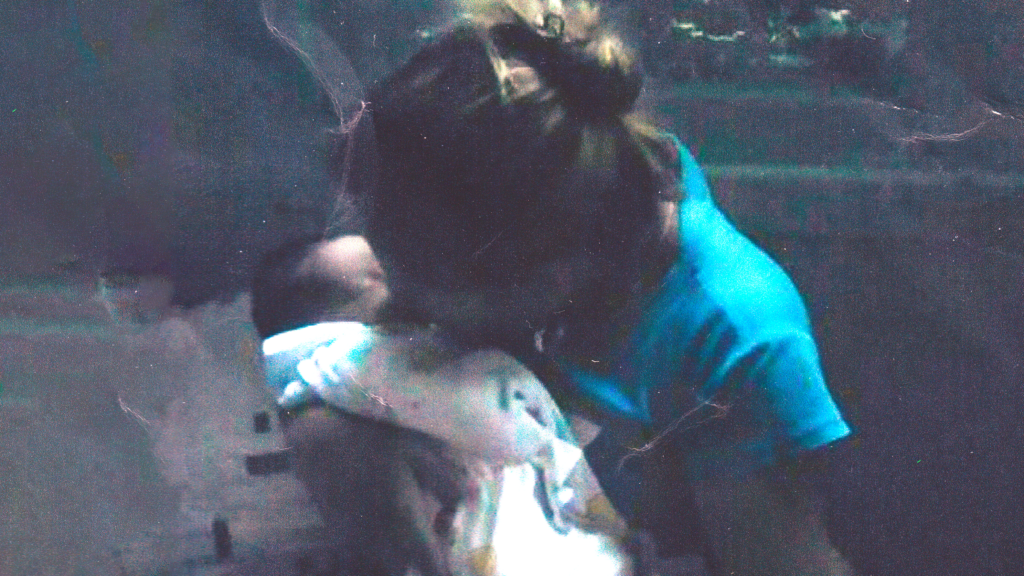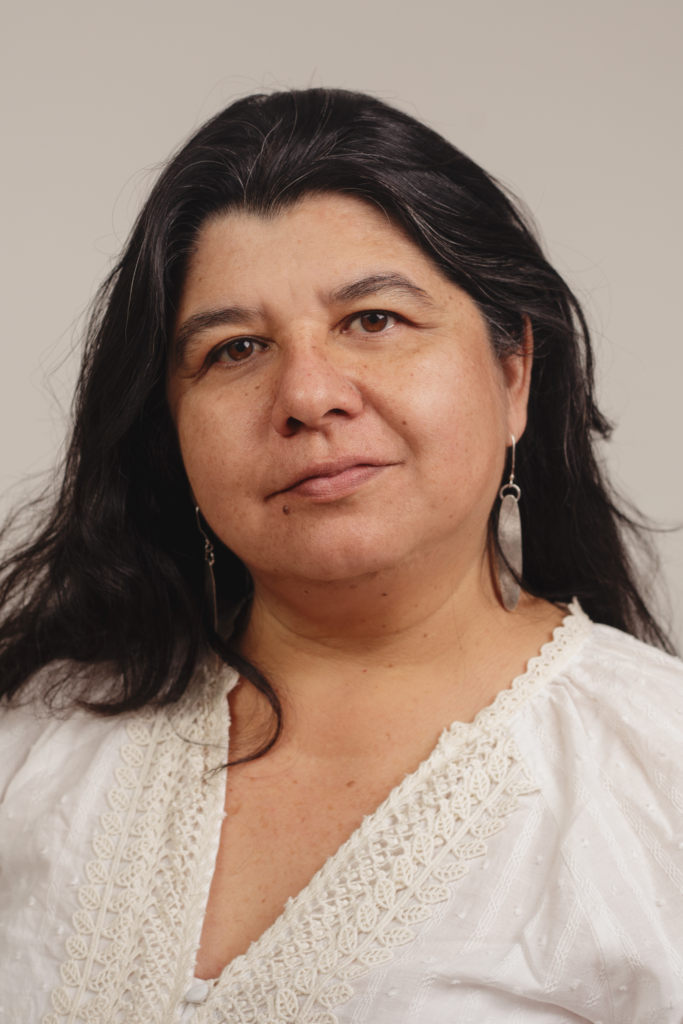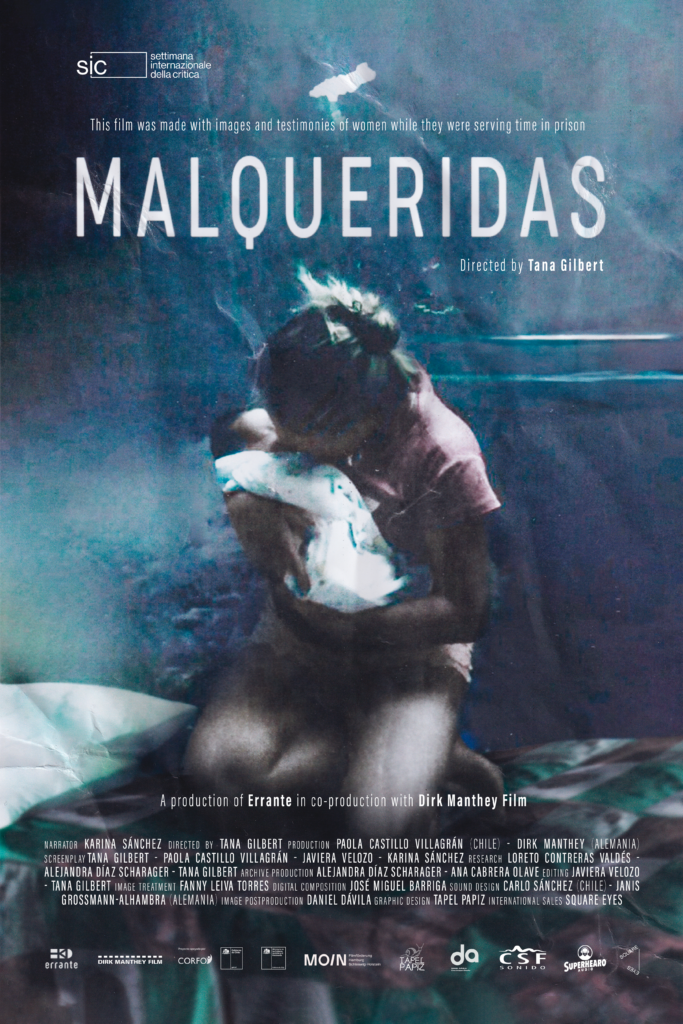• The film portrays the stories of women mothers in prison. It is co-produced with Germany and will be part of the Venice International Film Festival, taking place between August 30 and September 9.
Almost a month before the 80th Venice International Film Festival, it has been announced that the documentary Malqueridas – a co-production with Germany, supported by Corfo, the Audiovisual Fund, and the MOIN Film Fund Hamburg Schleswig-Holstein – will be part of the parallel section of the film event, one of the most important in the world.
A collaboration between Errante and Dirk Manthey films, the film will participate in the 38th Settimana Internazionale della Critica de Venezia.
Directed by Tana Gilbert and produced by Paola Castillo, the film portrays the daily life of a group of mothers in Chile who have been deprived of their freedom. Their children grow up far from them but remain in their hearts. Behind bars, they find affection in other inmates who share the same situation. The mutual support among these women becomes a powerful form of resistance against a system that incarcerates poverty.

Malqueridas constructs the women’s stories through images captured by cell phones inside the prison, recovering the collective memory of an abandoned community. It creates a shared sense of affection expressed through the story of Karina, the film’s voice, who was deprived of her freedom for more than six years. This voice was created from extensive conversations that the filmmakers held with more than twenty women and reinterpreted based on Karina’s own experience.

The film’s vertical format respects the origin of the footage, reaffirming that the documentary’s image is also confined like them. Malqueridas was made with archives and testimonies of the women while they were serving their judicial sentences.
For Beatrice Fiorentino, General Delegate of the Venice International Critics’ Week, «Malqueridas is a film of admirable precision— aesthetically, politically, and theoretically. A reflection on the power of the image as it has not been seen in times.»
The film will be commercially premiered in Chile during the first half of 2024.

TANA GILBERT:
«I am confident this will allow us to pave the way for other female Chilean filmmakers of the future.»
«The cinematographic exercise values these images recorded with cell phones destined to be confiscated and lost. Each frame of the film is printed and re-digitized. We seek to provide a physical space for these images, making them permanent and impossible to erase. The film contains a collective memory that, despite its pixelated and blurred characteristics, reveals a question about the value of images. Creating images implies appropriating what is recorded, turning something that surrounds you into something of your own. For us, this film is made between them and us. It is a film that invites us to approach the experience of deprivation of freedom through the power of images and reminds us that human, physical, and emotional relationships are universal,» says Tana Gilbert, responsible for acclaimed short films such as Sigo acá and Ninguna Estrella.

«Our goal is to reflect on the triple ruling that these women face in prison: the prison verdict; the social sentence, due to the imposition of being ‘exemplary mothers’ where crime has no place; and the personal judgment, due to the suffering involved in being separated from their children for years,» adds the director. «The affections are the force that sustains and makes us connect with the subjectivity of these experiences, despite the distance with their children imposed by the prison system. Malqueridas challenges the dominant narrative through its collective construction in an attempt to preserve their stories, their existence, and humanity. In a context of institutional violence and marginalization, collective memory becomes an archive of resistance».
On the big premiere in Venice, Gilbert says: «I am delighted and excited to present my first feature film at the Venice Critics’ Week. Malqueridas has a large team of talented and hard-working people who have been working hard for seven years. The relationship we built with all the women who participated in the film has transformed us forever. My view of cinema has to do not only with the aesthetic proposal and the exploration of language, but also with the construction of discourses that question the social problems that surround us. Cinema allows us to open dialogues between human groups, to explore cultural richness, and the stories of ordinary people.»

PAOLA CASTILLO:
«We are designing an impact campaign.»
«In the 38 years of the Venice International Critics’ Week, this is the first time a Chilean documentary has premiered, and the first national film directed by a woman, which is a significant milestone for the team, and also for the visibilization of our community. We hope it will also help to open space for new documentary filmmakers in this scenario. Apart from its great prestige, the Week has a long history of discovery, and they are always looking for new voices, looks, and bold approaches. That’s why we are thrilled and proud that Tana’s debut film will premiere there,» says Paola Castillo, producer of acclaimed titles such as Allende mi abuelo Allende and Haydee y el pez volador.
The producer adds: «For us, it is also essential to make visible the situation of women in prison, particularly those who are mothers. We are designing an impact campaign to place the situation of women in prison on the agenda of political organizations and civil society, aiming to promote future structural changes in areas such as the possession of cell phones inside prisons in Chile or alternative motherhoods for women deprived of liberty. The impact campaign also aims to strengthen this community of imprisoned women and enhance their reinsertion networks. For this purpose, we will hold a bookbinding workshop for women who have served their sentences and their children, where they will learn the trade and make notebooks and diaries that will be sold to different distributors and, in the first instance, as promotional material for the film. We see the creation of this workshop as a space to generate links through creation, as a job opportunity, and as a great possibility to make their stories known to others.»
SYNOPSIS
They are women, they are mothers and they are deprived of their freedom in Chile. Their children grow up far from them but remain in their hearts. In prison, they find affection in other women who share their situation. Mutual support among these women becomes a powerful form of resistance.
Malqueridas constructs their stories through images captured with cell phones inside the prison, recovering the collective memory of an abandoned community.
